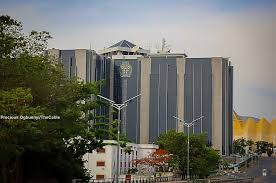The Central Bank of Nigeria (CBN) has launched a new digital platform to help Nigerians living abroad access banking and financial services without needing to come home physically. This new move is aimed at making it easier for diaspora Nigerians to send money, open bank accounts, and invest in Nigeria, as the country continues to improve financial inclusion.
In partnership with the Nigeria Inter-Bank Settlement System (NIBSS), the CBN introduced the Non-Resident Biometric Verification Number (NRBVN) in Abuja. This platform allows Nigerians living overseas to register for a BVN digitally, removing the need for them to visit Nigeria in person for biometric verification. With this, they can access services like savings, loans, insurance, pensions, and funds transfer from anywhere in the world.
CBN Governor, Mr Olayemi Cardoso, said the NRBVN will act as a digital bridge between Nigeria and its citizens abroad. He explained that many Nigerians living abroad have faced problems when trying to use banking services back home, especially because they had to be physically present to register their BVN. He said the new platform will remove that stress and help more people to join the formal banking system.
Mr Cardoso said the CBN took lessons from other countries like India and Pakistan. He noted that India created Non-Resident External and Non-Resident Ordinary accounts that helped its banks attract over $160 billion in diaspora deposits. In Pakistan, the Roshan Digital Account has brought in close to $10 billion since it was launched. The CBN believes that Nigeria can also benefit from similar ideas.
To make it easier for Nigerians abroad to invest, the CBN also introduced two new account types: the Non-Resident Nigerian Ordinary Account and the Non-Resident Nigerian Investment Account. These accounts will help channel diaspora funds into useful parts of the Nigerian economy like bonds, equities, real estate, insurance, and pensions. The funds can also be sent back abroad fully, following Nigerian rules.
Mr Cardoso advised Nigerian banks to create new financial products that suit the needs of Nigerians living outside the country. He said this will encourage more people to use official channels to send money and invest in Nigeria. He revealed that the amount of money sent through official remittance channels increased from $3.3 billion in 2023 to $4.73 billion in 2024 due to new CBN policies. These include licensing more International Money Transfer Operators (IMTOs) and introducing a willing buyer, willing seller exchange rate.
The CBN is now targeting $1 billion in monthly remittances, and the governor believes this can be achieved if trust in formal channels continues to grow. He called on IMTOs to work with the NRBVN system, saying a more efficient and inclusive banking system will benefit everyone.
According to a report by Enhancing Financial Innovation and Access (EFInA), Nigeria’s financial inclusion rate rose from 56 per cent in 2020 to 64 per cent in 2023, largely due to growth in fintech and other non-bank services. However, the diaspora community has been left behind until now.
Nigeria’s efforts to improve access to financial services began in 2012 with the National Financial Inclusion Strategy. At that time, about 53 per cent of adults in Nigeria had no access to banking services. The CBN had set a target to reduce this to 20 per cent by 2020. Although the target was not fully met, progress has been made over the years.
Mr Cardoso pointed out that Nigeria’s informal sector is worth around $240 billion and is a big source of untapped money. He believes that bringing this sector into the formal banking system will help boost the economy and reduce poverty. He said tools like the NRBVN can play a big role in this.
The President of the Association of Bureaux De Change Operators of Nigeria, Dr Aminu Gwadabe, said diaspora remittances are a major source of foreign exchange for Nigeria. He praised the CBN for working to increase trust in the foreign exchange market and making it easier for people to send money through legal channels.
In 2023, diaspora remittances to Africa reached $90 billion, according to Western Union’s Regional Vice President for Africa, Mr Mohamed Touhami el Ouazzani. He said this money does more than just pay bills—it supports families, grows small businesses, and helps countries build infrastructure. He said remittances show the strong connection between Africans abroad and their home countries.
With this new platform and the introduction of special accounts for Nigerians abroad, the CBN is taking steps to fully involve the diaspora community in Nigeria’s financial future. The aim is to make banking easier, reduce remittance costs, and use diaspora funds to support national development.
